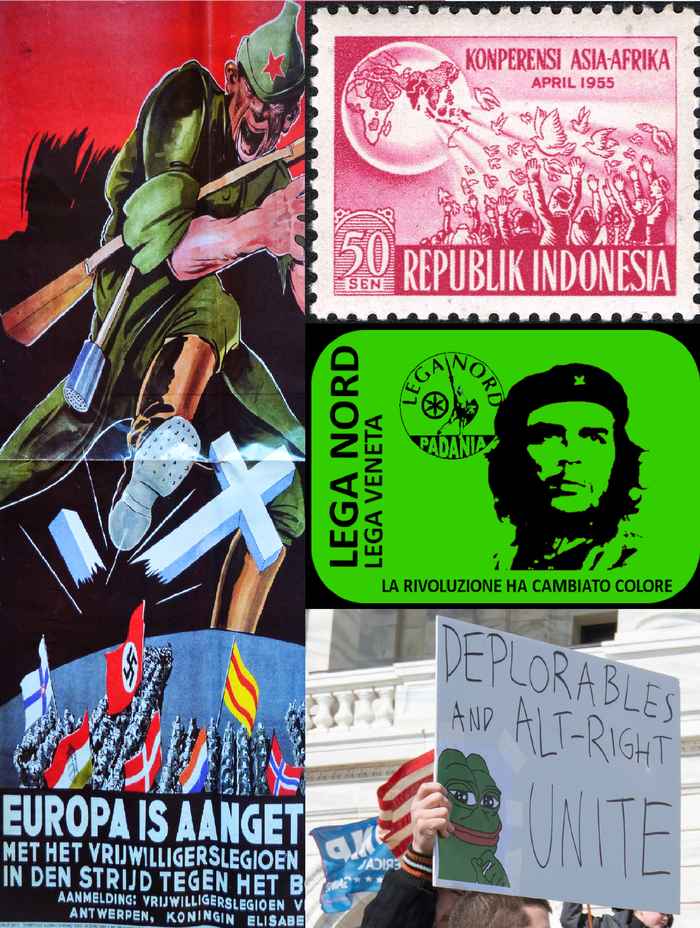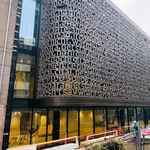Antiliberal Internationalism in the 20th Century: Beyond Left & Right?
- Start date
- 11 January 2023
- End date
- 13 January 2023
- Location
- University Library

Theme
Since the turn of the millennium, all over the globe new forms of international collaboration have surfaced that explicitly position themselves against the liberal international order established after the fall of the Berlin Wall. Examples of this new antiliberal internationalism are the Congress of European ‘conservative nationalists’ held in Rome (February 2020), the Visegrád Group meetings which offer a platform for self-proclaimed ‘illiberal’ government leaders from Central Europe, the nebulous network of far-right ‘traditionalist’ anti-liberal intellectuals including the likes of Alexandr Dugin and Steve Bannon, the leftist anti-neoliberal and anti-austerity Greek-Spanish collaboration between Syriza and Podemos and its grassroots constituencies, cross-border far-right protest movements such as Pegida, the Russian-Chinese strategic alliance, or the ‘Buddhist international’ in South-Eastern Asia. In scholarship, these and other contemporary examples of antiliberalism across national boundaries are frequently explained as consequences of the recent cultural backlash, tendencies of authoritarianism and the populist zeitgeist against the backdrop of globalising societies. However, in hindsight, antiliberal internationalism is not necessarily a timely or new phenomenon – nor can current manifestations of it be understood or explained detached from historical precursors.
Programme
Wednesday 11 January
2:45pm CET Welcome Stefan Couperus (University of Groningen)
3:00-4:00pm Keynote 1: Global Sources of Anti-Liberalism by Glenda Sluga (European University Institute/University of Sydney). Introduction speaker by Matthijs Lok (University of Amsterdam)
Doelenzaal
4:00-4:30pm Coffee Break
4:30-6:00pm Panel 1: Anti-“Western” Internationalism
Doelenzaal
- Chair: Stefan Couperus (University of Groningen)
- Arnab Dutta (University of Groningen): “Kalidas Nag, the Oriental League of Nations, and the Limits of Liberal and Anti-liberal Internationalisms in British Bengal, 1920s-40s”
- Sungik Yang (Harvard University): “Skepticism of Western Liberalism in South Korea, 1945–1960” [online]
- Tomohito Baji (University of Tokyo): “Ecological internationalism? Postcolonial and archipelagic visions of the Pacific”
Discussant: Sudha Rajagopalan (University of Amsterdam)
6:00pm Borrel / Drinks
7:30pm Informal Dinner, Surinamese Chinese restaurant Kam Yin
Warmoesstraat 6, 1012 JD Amsterdam
Thursday 12 January
9:20am CET Welcome by Robin de Bruin (University of Amsterdam)
9:30-11:00am Panel 2: Religious Internationalism
Belle van Zuylenzaal
- Chair: Rachel Johnston-White (University of Groningen)
- Mriganka Mukhopadhyay (University of Amsterdam): “Occult Roots of Indian National Congress: Religious Nationalism and Alignment of Ideologies in India”
- Katherine Booska (University of California, Berkeley): “Importing Theocracy: Thomas Molnar, Hungary, and American Catholic Traditionalism”
- Avital Sicron (Hebrew University of Jerusalem): “Jewish Purity and Disgust: Israeli Anti-liberalism and its Transnational Inspiration”
- Gulnaz Sibgatullina (University of Amsterdam/George Washington University): “‘White European Islam’: An Ideological Experiment”
Discussant: Chloe Kattar (Darwin College, Cambridge University)
11:00-11:30am Coffee Break
11:30am-1:00pm Early Career Masterclass with Glenda Sluga & Benjamin Teitelbaum. Introduction Masterclass by Rachel Johnston-White & Stefan Couperus (University of Groningen)
Belle van Zuylenzaal
1:00-2:30 pm Lunch
2:30-3:30pm Keynote 2: Contemporary “Illiberalism” by Marlene Laruelle (The George Washington University). Introduction speaker by Rachel Johnston-White (University of Groningen)
online in Doelenzaal
3:30-4:00pm Coffee break
4:00-5:30pm Panel 3: Inter- and supranational Contestations of Liberal Values
Belle van Zuylenzaal
- Chair: Robin de Bruin (University of Amsterdam)
- Hugo Canihac (Saint-Louis University, Brussels/Sciences Po): “The Anti-Liberal Origins of Supranational Law: Shaping the legal concept of ‘supranationality’ in France between the World Wars”
- Jonathan Voges (Leibniz Universität Hannover): “Antiliberal Internationalists in the League of Nations? Gonzague de Reynold, Alfredo Rocco, and Hugo Andres Krüss in the International Committee of Intellectual Cooperation”
- Iason Zarikos (Panteion University Athens) and Georgios Giannakopoulos (London School of Economics): “Anti-liberal internationalism and the European South during the Global Financial Crash”
- Ivan Kalmar (University of Toronto): “Viktor Orbán’s Quest to Lead the West”
Discussant: Theresa Kuhn (University of Amsterdam)
7:00pm Conference Dinner, Indonesian restaurant Indrapura
Rembrandtplein 40, 1017 CV Amsterdam
Friday 13 January
9:25am CET Welcome by Marjet Brolsma (University of Amsterdam)
9:30-11:00am Panel 4: Neo-traditionalism, Nationalism, and Internationalism
Belle van Zuylenzaal
- Chair: Arnab Dutta (University of Groningen)
- Memtimin Semet & Klaus Weber (Europa-Universität Viadrina): “Shaping anti-liberal modernity: Intellectual transfers between the Kaiserreich, the late Qing and the late Ottoman Empire, and three young Republics”
- Brandon Bloch (University of Wisconsin-Madison): “Reclaiming Homelands: Pan-German Nationalism and International Refugee Law after World War II”
- Chloe Kattar (Darwin College, Cambridge University): “‘Dhimmitude’, an international theoretical site for Islamophobic intellectuals”
- Matthew Myers (University of Oxford): “Authoritarian internationalism, middle class politics in Britain, and the National Association for Freedom, 1976-9”
Discussant: Matthijs Lok (University of Amsterdam)
11:00-11:30am Coffee Break
11:30am-12:30pm Keynote 3: Authoritarian and fascist sources of anti-Liberalism by António Costa Pinto (University of Lisbon/ISCTE-IUL, Lisbon). Introduction speaker by Robin de Bruin (University of Amsterdam)
Doelenzaal
12:30-2:00pm Lunch
2:00-3:30pm Panel 5: Fascist, Nazist and Colonial Echos in Internationalism
Belle van Zuylenzaal
- Chair: Marjet Brolsma (University of Amsterdam)
- Katy Hull (University of Amsterdam): “The Symphony of Order: Fascist Corporatism in the United States”
- Baijayanti Roy (Goethe University): “Nazi propaganda and ethno-religious nationalism: The “German Society” of Aligarh Muslim University”
- Siobhán Amelia Smith (European University Institute): “Anti-liberal internationalism, and the pariah state of Rhodesia”
Discussant: Daniel Knegt (University of Amsterdam)
3:30-4:00pm Coffee break
4:00-5:00pm Keynote 4: Contemporary “traditionalists” and anti-liberalism by Benjamin Teitelbaum (University of Colorado, Boulder). Introduction speaker by Stefan Couperus (University of Groningen)
online in Doelenzaal
Close of conference by Theresa Kuhn (University of Amsterdam)
Registration
You can register by sending an email to M.M.Lok@uva.nl.
Conference organization committee
Marjet Brolsma (University of Amsterdam)
Robin de Bruin (University of Amsterdam)
Stefan Couperus (University of Groningen)
Rachel Johnston-White (University of Groningen)
Matthijs Lok (University of Amsterdam)
This conference is sponsored by
Amsterdam Centre for European Studies (ACES, University of Amsterdam)
Amsterdam School for Regional, Transnational and European Studies (ARTES, University of Amsterdam)
Agricola School for Sustainable Development (University of Groningen)
Groningen Institute for the Study of Culture (ICOG, Faculty of Arts, University of Groningen)
Amsterdam School of Historical Studies (ASH, University of Amsterdam)
Research School Political History
